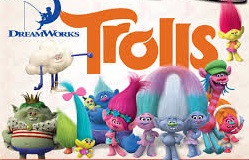 How Far are you willing to go to LEAD others?
How Far are you willing to go to LEAD others?
In the movie Moana, there are multiple leadership lessons that stick out to us as leaders, here are just a few of those that we learned taken from
13 Leadership Lessons And Quotes From Disney’s Moana
A Reel Leadership Article
1. The success we seek isn’t always success:
As we begin Moana, we hear her grandmother share the story of Maui (voiced by Dwyane “The Rock” Johnson) and how he successfully stole the heart Te Fiti. Only after he steals the heart does he realize his idea of success is wrong.
Darkness overtook the island and he lost his magical abilities to transform. He also lost the heart of Te Fiti to the bottom of the ocean.
Without a clear knowledge of what we’re doing, we can chase after the wrong idea of success. We’ll go after what looks like success:
Fame
Fortune
Followers
Only to end up realizing we’ve been chasing the wrong thing the whole time. Make sure you know what success truly looks like before you pursue it.
2. Gramma Tala:
Someone will have to go
I loved this line by Moana’s (voiced by Auli’i Cravalho) grandmother. The island was in trouble and she realized it. She also realized someone needed to go and retrieve the stolen heart. Without it, hope was lost.
Who will it be in your organization? Who will stand up and lead?
My guess is that it should be you. Do it.
3. Great leaders protect:
Even in her infancy, Moana was a protector. We see that early in the movie when she covers a turtle and guides him towards the ocean waters.
She kept him safe and out of the view of the birds who wanted to eat him.
That’s something great leaders do. Great leaders protect those they lead.
4. Fear holds you back:
Once a great voyaging tribe, the islands on Moana’s island no longer traveled on the sea. They stayed safe and cozy on their island.
If ever someone had the CRAZY idea of leaving, they would tell them they would perish by pushing off into the waters. They held those who had great vision back.
When we let fear take hold in our lives, it does the same thing the villagers did. Fear holds us back.
Know that fear only holds you back because you listen to it. With a proper examination of the situation, you can tell whether or not you need to fear.
If you don’t have to fear, move forward.
5. Moana:
Sometimes our strengths lie beneath the surface
Hei Hei was a scraggly looking rooster. He didn’t always go towards the food and something seemed a bit off about him.
Yet Moana knew there was something special with Hei Hei. She believed his strengths weren’t based on his looks. He had something deep down in him.
You might not be the best looking man or woman in the world. You might struggle to speak publicly.
Still, you have strengths just beneath the surface. You are wise beyond your years. You can see patterns no one else sees. Or maybe it’s the fact that you can bring people together like no one else.
You have a strength. Find it and cultivate it.
6. Bang the drum:
Before Moana was able to find out the true history of her people, she had to do something. Moana had to beat the drums on the sailing vessels she found.
Once she did, she was treated to the knowledge of how her people used to be voyagers.
Leadership requires you to take action. Beating the drum was Moana’s stepping stone.
You have one too. Find your drum and beat it.
7. Gramma Tala:
Who are you meant to be?
A great question all leaders should ask themselves.
8. We struggle to start leading for various reasons:
For Moana to take her voyage, she would have to leave everything behind. Including her dying grandmother.
She wrestled internally on whether or not to leave before she settled on setting sail.
What’s holding you back from beginning your leadership journey? Is it negative thoughts or a family member?
Wrestle with the issue and then lead!
9. Moana:
We can voyage again!
Because of the fear of what layout on the ocean, Moana’s people gave up voyaging. They wouldn’t leave their island.
Moana realized that this didn’t have to be their truth forever. They could overcome their fear and voyage again.
The present may not be as glorious as the past. With your help, you can restore your organization to it’s former, or even better, glory.
10. Find the right motivators:
After finding Maui, Moana couldn’t get Maui to join her on her journey. That is until she found the right motivation.
Maui’s tattoos told stories. One of those tattoos showed Maui being worshiped by people. Moana caught onto this and played up his desire to have the praise of people.
She found his motivator.
You have to do the same thing. You need to look at your people and find out what moves them.
11. Moana:
Teach me to sail
Moana had the heart of a learner. She desired to learn how to sail and voyage like those from previous generations. And she wasn’t too proud to ask to be taught.
Do you have the heart of a learner? Don’t be afraid to ask a mentor or friend to teach you what you need to know.
12. Know your purpose:
We see Moana’s struggle from the beginning of the movie until it closes. She knew her purpose and had the desire to live it out.
When it came time to step up to the plate, knowing her purpose made all the difference.
Seek out your purpose. Discover what God made you for. Then live your life in His will.
13. Practice your craft:
Maui, with the assistance of his fish hook, had the ability to transform into various animals. Over the hundreds of years he didn’t have his fish hook, he forgot how to control his abilities.
With practice, Maui was able to regain the ability to shapeshift.
Practice your craft. Whether that’s writing, public speaking, knife making, or some other form of art. The more you practice, the better you will be.
After reading through these 13 leadership lessons, answer the following questions.
2. Pick 3 characteristics from the above list you created that you feel are the most important to being a great leader. Explain why each is important.
3. What characteristics of a leader does Moana show in the movie?
4. What is one major lesson that stuck out to you in the movie? What was it and how can that lesson help us be greater leaders within our school and community?
5. Pick one quote from the movie, what does it mean and how can we apply it to our own leadership knowledge?
 This is what we call CHANGE. Change is good and you go first.
This is what we call CHANGE. Change is good and you go first.







